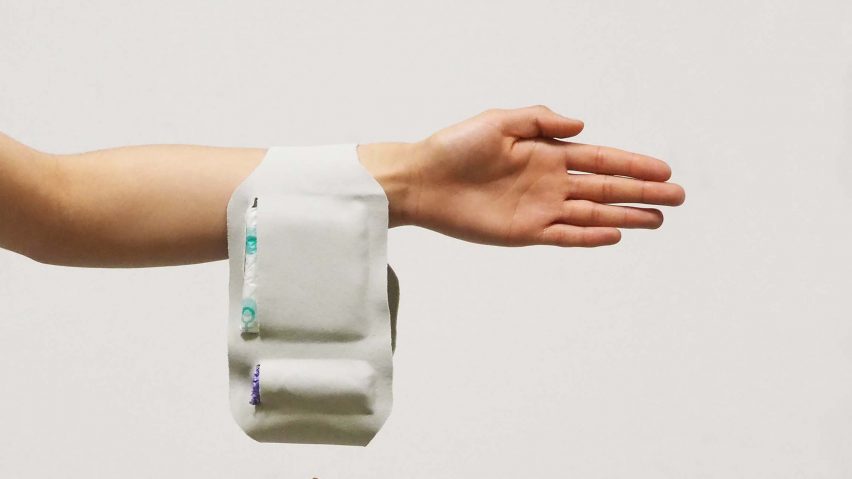
Carrie is a "wearable pocket" for soldiers and police officers to store period products
Central Saint Martins graduate Amelia Kociolkowska has designed a spandex pouch called Carrie, which offers those working in the police or armed forces a discreet and hygienic way to store their sanitary products while in the field.
With easy access in mind, the "wearable pocket" is designed to be either strapped around the thigh like a holster or clipped on to a belt loop and tucked into the waistband.
Storing tampons and pads directly on the body allows female officers to quickly change them even while on active duty, as well as avoiding pointed comments from male colleagues when reaching for their sanitary products.
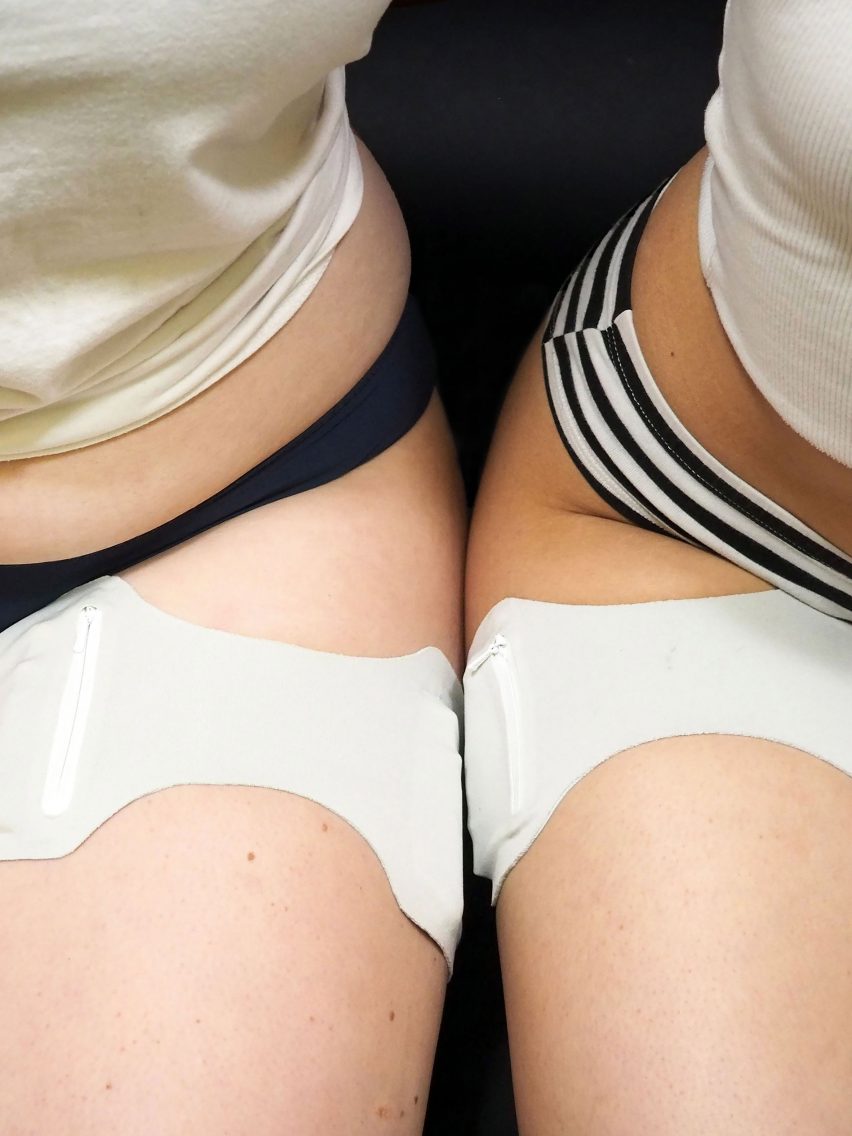
Kociolkowska determined these as the most pressing concerns after conducting a series of interviews and workshops with women in these professions, as well as joining a police ride-along.
"A former soldier described how, when she was out in the field, she would have to hide behind a bush to change and would depend on the help of another woman to hold her bag of period products," she told Dezeen.
"She couldn't store them in her uniform as it was constantly dirty and, if she was in the field alone, she'd have to balance her artillery and equipment with her period products, which is as difficult as it is unhygienic."
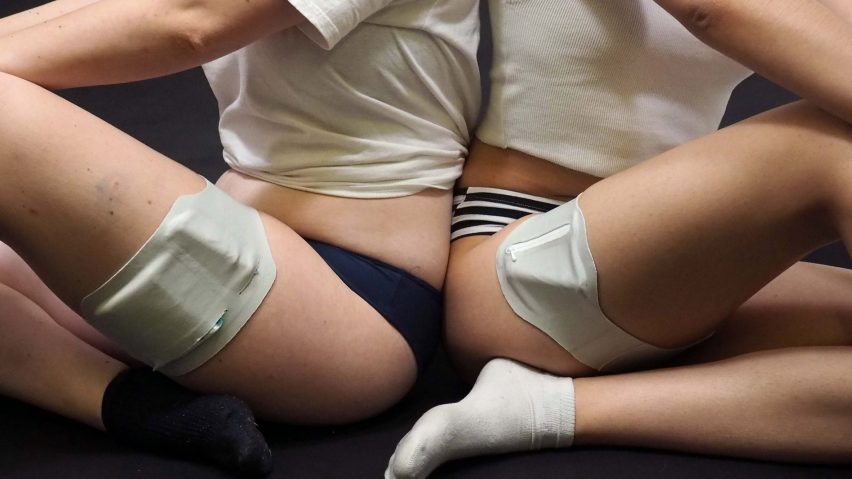
The Carrie mitigates this difficulty by having the products automatically revealed upon pulling down the trousers, with designated compartments for tampons and pads.
Developed in collaboration with London College of Fashion graduate and costume designer Zsofia Kiss, the Carrie features a clean white, streamlined design reminiscent of traditional shapewear, forgoing any seams that might be visible through clothing.
One of the pockets also comes with a zipper and a detachable, waterproof lining to store used period products when there is no place to dispose of them.
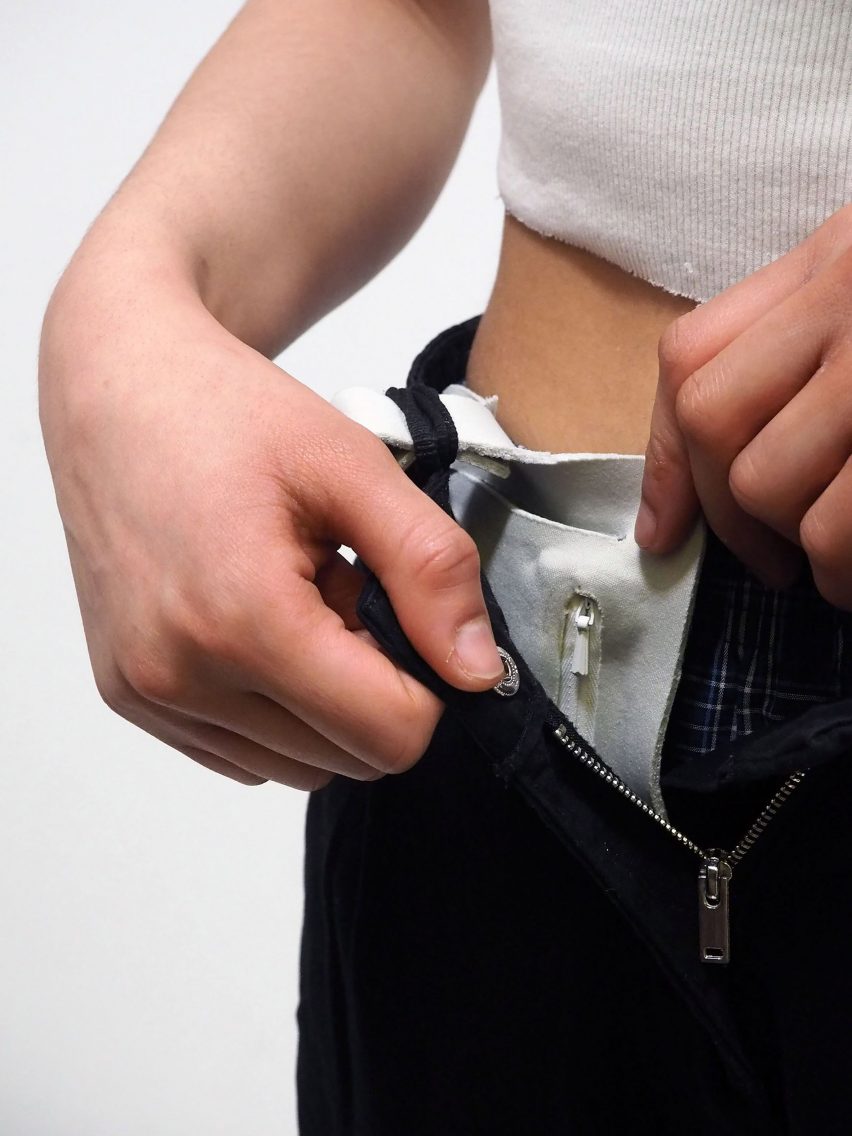
According to Kociolkowska, situations like these are surprisingly common while officers are in the field.
"One of the roles of the police involves visits to crime scenes. During these visits, it is vital to not interfere with the environment or leave behind traces of DNA, so it would be unprofessional to throw away any waste product on a site like that," the designer explained.
"Officers are often required to be on patrol for several hours with no place to go to change their tampons. One of my interviewees told me she used to have to wrap them up in a plastic bag and dispose of them once she was back at the police station.
"My idea to include a smell-resistant, antimicrobial and washable pocket is a sustainable attempt to humanise this action," she continued.
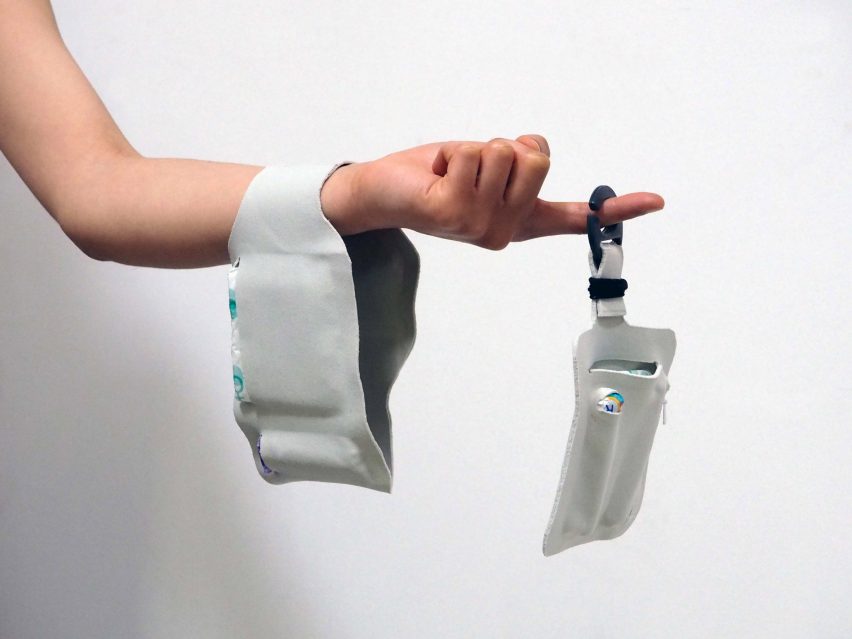
Although in-situ testing of Carrie had to be postponed due to the ongoing pandemic, Kociolkowska is planning to further develop the product in collaboration with female officers to ensure that it is as comfortable and practical as possible.
The project originally began as an investigation of the gender data gap, as defined by writer Caroline Criado Perez in her book Invisible Women: Data Bias in a World Designed for Men.
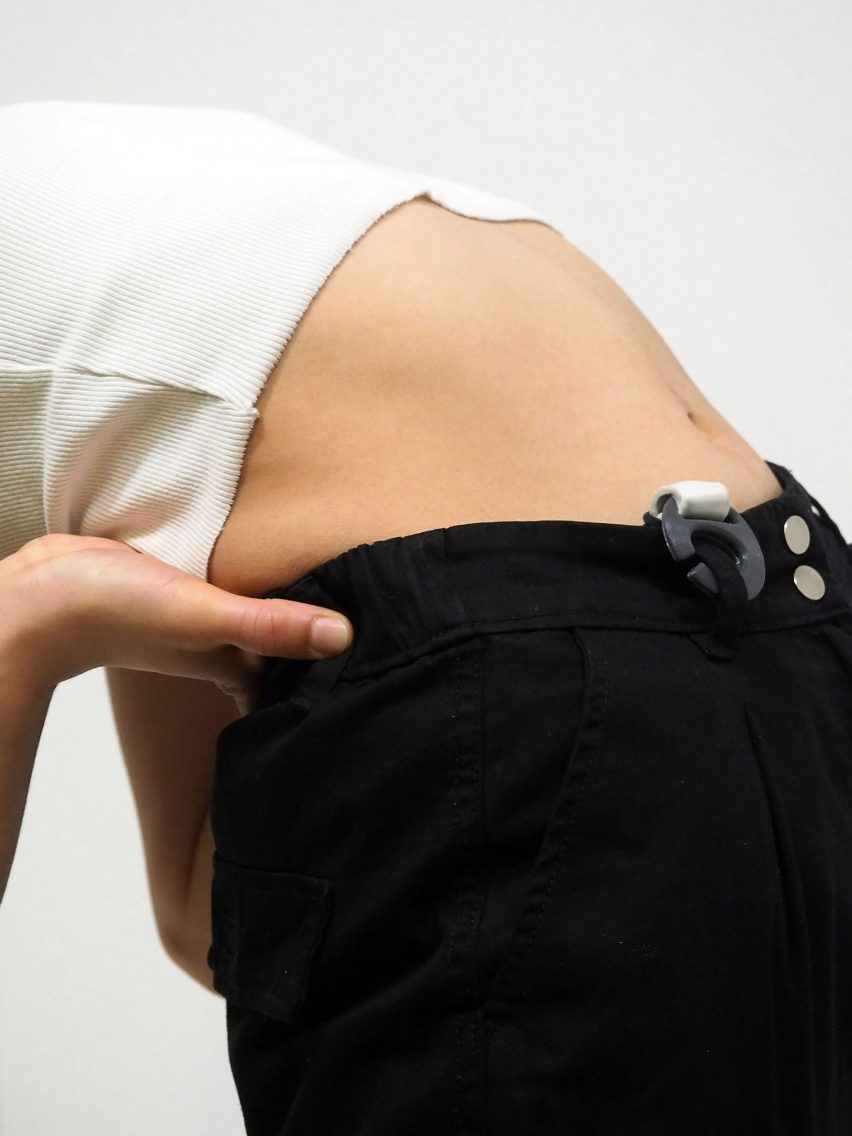
"The vast majority of information that we have collected globally, and continue to collect – everything from economic data to urban planning data to medical data – has been collected on men, male bodies, and typical male lifestyle patterns," the author explained in an interview with Dezeen.
"The result is that many things in the world, most things actually, just don't work as well for women. This is the gender data gap."
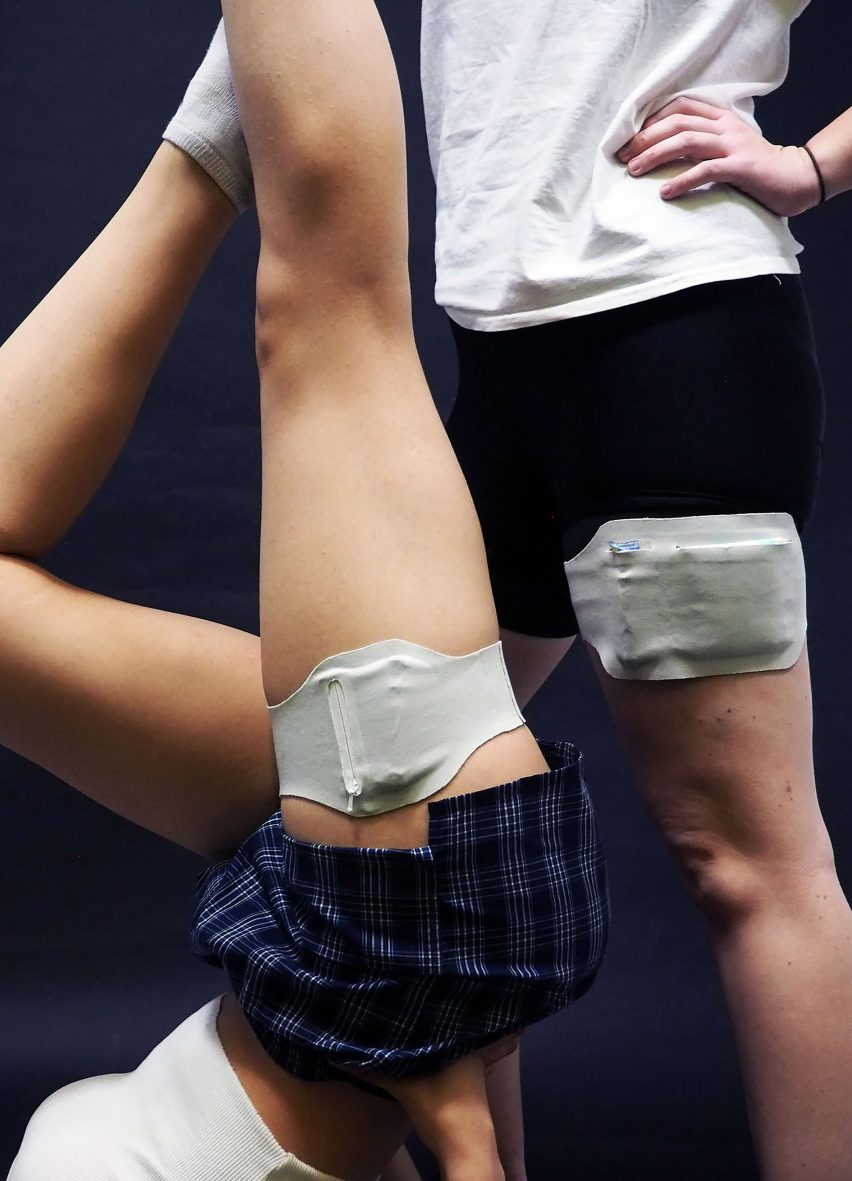
This idea is what led Kociolkowska to talk to women in male-dominated professions, to assess what impact a work environment that was not designed for female officers has on them and their mindset.
"I think it's important to design gender-specific uniforms because there is proof that the current options do not serve women as well as they do men," she said.
"For years, women entering these industries have essentially been handed a male uniform. This fuels imposter syndrome, which is already an issue for women in a range of careers."
Other designers have chosen to use rather less covert methods of storing period products, such as Swedish-born Katarina Hornwall who created a necklace designed to hold an "emergency tampon" in its bullet-shaped pendant.